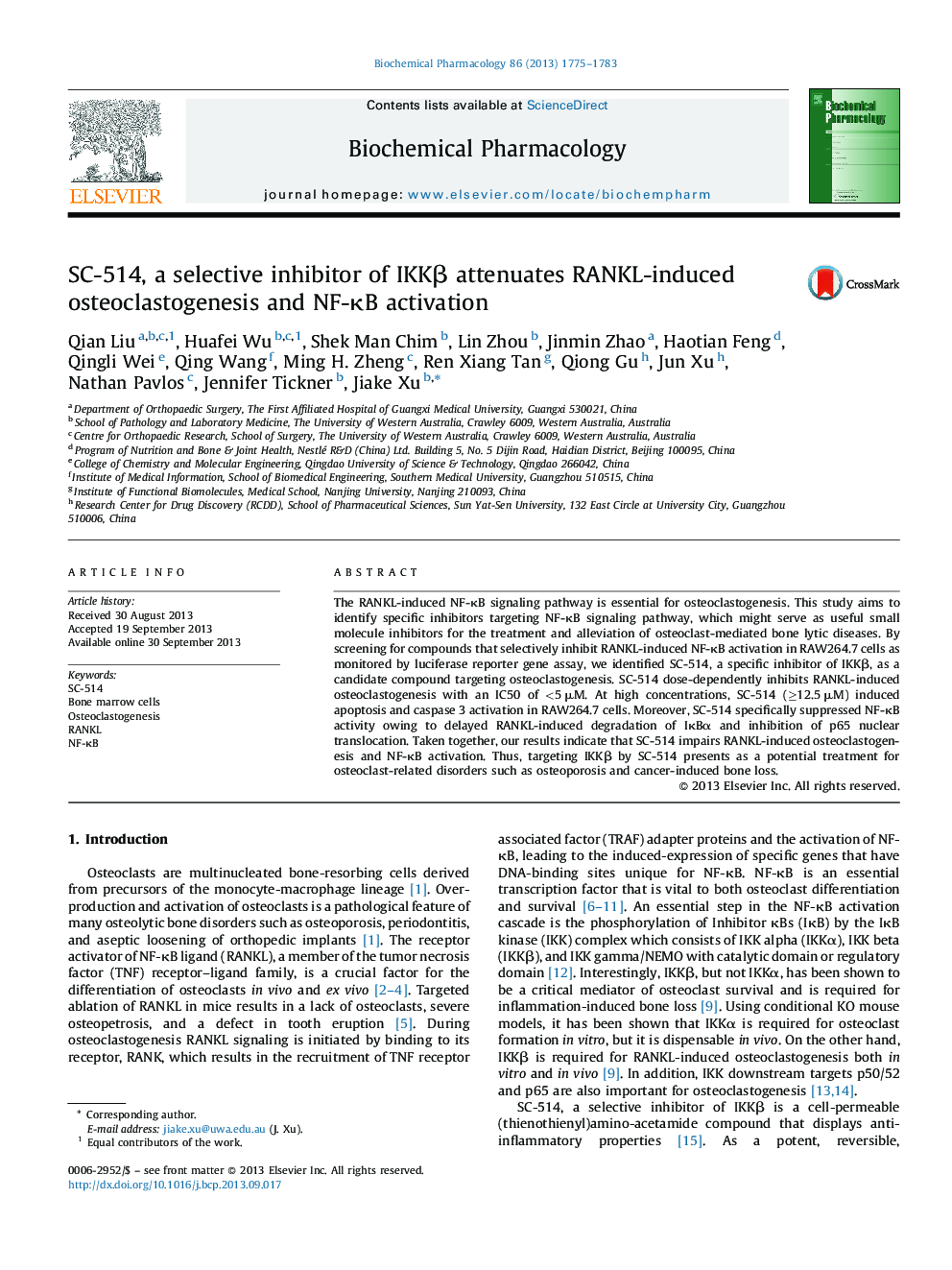| Article ID | Journal | Published Year | Pages | File Type |
|---|---|---|---|---|
| 2512288 | Biochemical Pharmacology | 2013 | 9 Pages |
The RANKL-induced NF-κB signaling pathway is essential for osteoclastogenesis. This study aims to identify specific inhibitors targeting NF-κB signaling pathway, which might serve as useful small molecule inhibitors for the treatment and alleviation of osteoclast-mediated bone lytic diseases. By screening for compounds that selectively inhibit RANKL-induced NF-κB activation in RAW264.7 cells as monitored by luciferase reporter gene assay, we identified SC-514, a specific inhibitor of IKKβ, as a candidate compound targeting osteoclastogenesis. SC-514 dose-dependently inhibits RANKL-induced osteoclastogenesis with an IC50 of <5 μM. At high concentrations, SC-514 (≥12.5 μM) induced apoptosis and caspase 3 activation in RAW264.7 cells. Moreover, SC-514 specifically suppressed NF-κB activity owing to delayed RANKL-induced degradation of IκBα and inhibition of p65 nuclear translocation. Taken together, our results indicate that SC-514 impairs RANKL-induced osteoclastogenesis and NF-κB activation. Thus, targeting IKKβ by SC-514 presents as a potential treatment for osteoclast-related disorders such as osteoporosis and cancer-induced bone loss.
Graphical abstractFigure optionsDownload full-size imageDownload as PowerPoint slide
